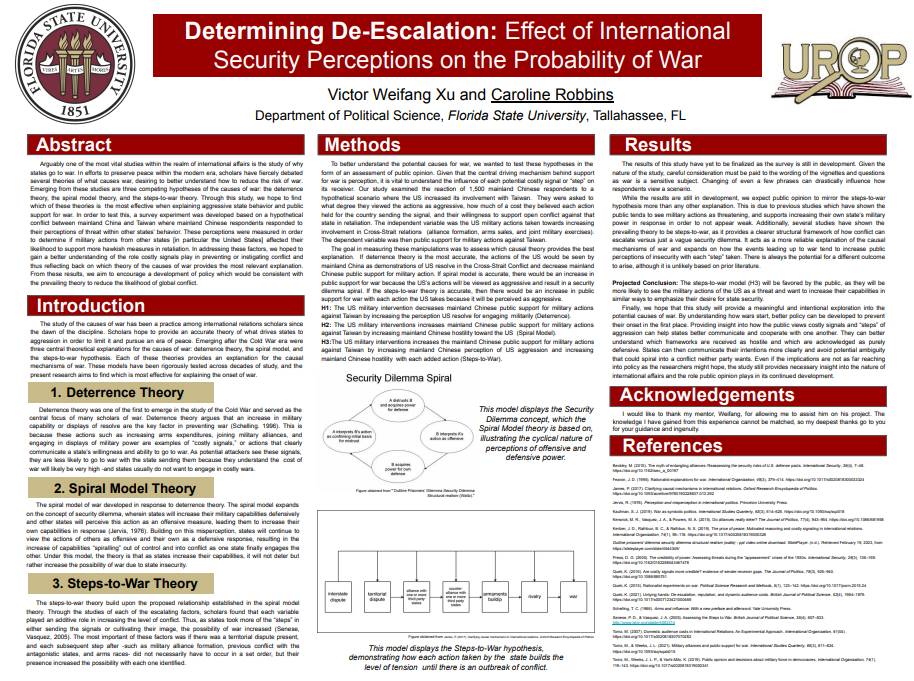Research Symposium
23rd annual Undergraduate Research Symposium, April 6, 2023
Caroline Robbins Poster Session 1: 11:00 am - 12:00 pm/ Poster #107

BIO
Caroline Robbins is a second-year student working toward degrees in International Affairs and Political Science, with a minor in Russian at FSU. Raised in Jacksonville, Florida, she now studies in Tallahassee where she hopes to gain invaluable experience in research. Her interests primarily focus on the effect of diplomatic rhetoric on interstate relations and the role of literature in developing sociopolitical movements. Currently, she is involved in the Undergraduate Research Opportunity Program and the Research-Intensive Bachelor’s Certificate for Political Science. After completing her undergraduate degrees, she hopes to enter a graduate program focusing on international affairs to continue honing her research ability and exploring her areas of interest more thoroughly.
Determining De-Escalation: Effect of International Security Perceptions on the Probability of War
Authors: Caroline Robbins, Victor Weifang XuStudent Major: International Affairs, Political Science
Mentor: Victor Weifang Xu
Mentor's Department: Department of Political Science Mentor's College: College of Social Science and Public Policy Co-Presenters:
Abstract
Arguably one of the most vital studies within the realm of international affairs is the study of why states go to war. In efforts to preserve peace within the modern era, scholars have fiercely debated several theories of what causes war, desiring to better understand how to reduce the risk of war. Emerging from these studies are three competing hypotheses of the causes of war: the deterrence theory, the spiral model theory, and the steps-to-war theory. Through this study, we hope to find which of these theories is the most effective when explaining aggressive state behavior and public support for war. In order to test this, a survey experiment was developed based on a hypothetical conflict between mainland China and Taiwan where mainland Chinese respondents responded to their perceptions of threat within other states’ behavior. These perceptions were measured in order to determine if military actions from other states [in particular the United States] affected their likelihood to support more hawkish measures in retaliation. In addressing these factors, we hoped to gain a better understanding of the role costly signals play in preventing or instigating conflict and thus reflecting back on which theory of the causes of war provides the most relevant explanation. From these results, we aim to encourage a development of policy which would be consistent with the prevailing theory to reduce the likelihood of global conflict.
Keywords: China, War, Conflict, International Security


